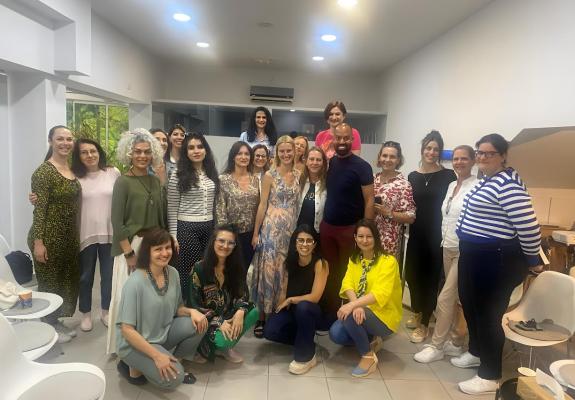Urgent Implementation of Alternative Dispute Resolution Methods for Enhanced Justice Delivery
In order to enhance the speed and effectiveness of justice delivery in Cyprus, there is an urgent need for the immediate and widespread implementation of extrajudicial alternative dispute resolution methods (ADR). This crucial call is being made by ETEK, underscoring the principle that "justice delayed is not justice."
ETEK highlights the remarks of Didier Renders, the Commissioner for Justice of the European Union, who pointed out that Cyprus ranks last in various domains for the year 2022. Renders specifically emphasized the significance of extrajudicial alternative dispute resolution methods (ADR) and encouraged Cyprus to draw lessons from the successful implementation of reforms in other European countries.
ETEK emphasizes that the utilization of ADR methods, including Arbitration, Adjudication, and Mediation, holds the key to effectively addressing the prevailing issues in Cyprus. ETEK has taken proactive measures to contribute to more efficient justice delivery within its jurisdiction.
A cornerstone of ETEK's stance is that the extensive application of ADR methods in construction and technical works contracts represents a critical step towards resolving disputes that result in the wastage of resources—both financial and human—conflicts, and substantial project delays.
ETEK recalls the establishment of the ETEK Center for Alternative Dispute Resolution (CEDR ETEK) in 2017, which has made significant strides in providing high-quality Arbitration, Adjudication, and Mediation services. The center also offers training in the field of alternative dispute resolution.
The ETEK Arbitrator Registry has recently undergone revisions, adopting stricter registration criteria and introducing a requirement for successful completion of a relevant examination for inclusion. Concurrently, the ETEK Arbitrator Code of Ethics has been established to ensure adherence to ethical standards by arbitrators.
The updated version of the ETEK Arbitration Rules for 2023 has been published and translated into English, aiming to establish a more effective framework for dispute resolution. Additionally, detailed Guidelines for remote dispute resolution procedures have been prepared and translated into English to streamline and expedite the process.

In pursuit of the same objective, ETEK has developed the ETEK Adjudication Rules in both Greek and English, providing the Cypriot market with a highly effective tool and a readily applicable procedure aligned with international standards and practices. These rules enable the timely resolution of disputes arising from construction contracts and consultancy service contracts. Comprehensive information and resources related to CEDR ETEK can be accessed through the dedicated portal.
ETEK emphasizes that the promotion of ADR methods requires more than just the provision of appropriate tools. It necessitates a shift in mentality and amendments to legislation and procedures governing contract management.
In this context, ETEK has repeatedly proposed specific, targeted, practical, and implementable solutions. For instance, it has urged the Ministry of Justice and the Commissioner for Legislation to take the initiative in modernizing outdated arbitration legislation dating back to 1946.
ETEK further recommends the establishment of a legal framework for the introduction of adjudication into Cypriot law, similar to the successful framework implemented in the United Kingdom. This modern and highly effective approach to alternative dispute resolution prioritizes the public interest.
Another proposal by ETEK involves a decision by the General Accountant's Office to reintroduce alternative dispute resolution clauses into public contracts, mirroring the practice in private sector construction contracts and the majority of contracts in advanced countries worldwide.
Lastly, ETEK emphasizes that alongside the above initiatives, proper interpretation of construction contracts and comprehensive training for all parties involved in these processes regarding alternative dispute resolution methods are essential for optimal and effective management of disputes arising in any contract or transaction.






